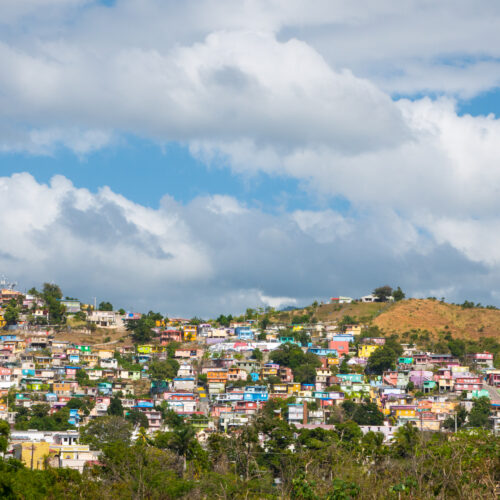Puerto Rico
The Commonwealth of Puerto Rico administers all indigent defense services through a non-profit and the judiciary. The Commonwealth primarily funds services, with non-governmental revenue constituting a large share of total funding. A commission provides oversight only of services provided by the non-profit.
The Commonwealth of Puerto Rico contracts with the non-profit Sociedad para Asistencia Legal de Puerto Rico (SAL) to provide primary indigent defense services in all adult and juvenile criminal trials and appeals (as well as in other case types). SAL provides services through 13 branch offices serving each of the commonwealth’s judicial regions. SAL also has a central office, an appellate division, and a juvenile division, among others. If SAL has a conflict, the Puerto Rico supreme court maintains a list of private attorneys for local courts to appoint on an hourly basis.
A commission, composed of seven members appointed by diverse authorities, oversees SAL and appoints an executive director. The board has no oversight of the court-administered private attorney panel. Indigent defense services in Puerto Rico are funded primarily from annual legislative appropriations, but with a large share also derived from non-governmental revenues (administrative legal fees attached to notary actions and property transfers).

Dig Deeper
Is there a right to counsel in Puerto Rico?
Who serves on the commission overseeing the Sociedad para Asistencia Legal de Puerto Rico?
Support Our Work
Criminal justice issues that disproportionately harm poor people, such as wrongful convictions and over-incarceration, cannot be fixed if indigent defendants are given attorneys who do not have the time, resources, or qualifications, to be a constitutional check on government. Yet, investment in improving indigent defense services remains largely neglected. The Sixth Amendment Center is the only nonprofit organization in the country that exclusively examines, uncovers, and helps fix the root of the indigent defense crisis in which inequality is perpetuated because poor defendants do not get a fair fight.
The Sixth Amendment Center is a tax-exempt 501(c)(3) nonprofit organization under EIN: 45-3477185.
Donations are tax-deductible to the fullest extent allowable under the law.